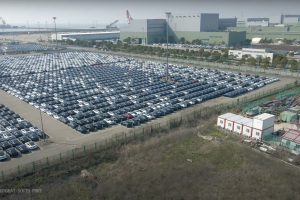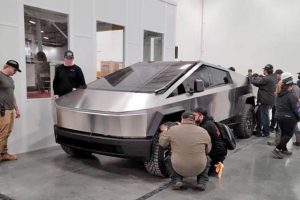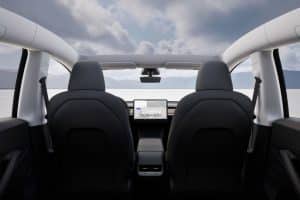Every crisis presents opportunities, ‘tis said — but when looking at facts and figures in the midst of the chaos, it can be hard to identify what represents crisis and what represents opportunity.
Last quarter, overall auto sales in the US slipped, but EV sales surged. Kelley Blue Book reports that total car sales fell by 21.3% in Q4 2021 compared to Q4 2020, while EV sales grew by 72%. Is this the beginning of the end of the Oil Age, or just another temporary COVID-induced distortion of the normal market?
Let’s look at the case for the former. In most positive scenarios of the clean energy future, individual car ownership will decline in response to a number of factors: more internet-based work (and play); better public transport and more walkable cities; and new shared ownership models. Some, notably Tesla’s Elon Musk, believe that autonomous vehicles will be in service most of the time, instead of parked most of the time, so that fewer will be needed. (Others, citing the principle that when things get cheaper, they get used more, believe that the rise of robotaxis could lead to more traffic, not less.)
On the other hand, there are several reasons to be wary of extrapolating a long-term trend from sales stats from one highly unusual quarter. By all accounts, the reason for tanking auto sales lies on the supply side. People still want to buy cars, as the sky-high prices for used vehicles, and the unattractive practice of auto dealers’ slapping high markups on in-demand models, make clear. However, automakers are unable to supply them, due to the ongoing chip shortage and other supply-chain problems.
As for the fact that EV sales soared, it would be more accurate to say that Tesla sales soared. Kelley tells us that some 72% of all EVs sold in the US last quarter sported Tesla’s cool cat’s-nose T on their hoods. Tesla also dominated the overall luxury market, outselling gas models from Audi, BMW, Lexus, and Mercedes.
For several reasons, notably its in-house software development and its unified computer architecture, the chip shortage has proven to be far less of a problem for Tesla than for the legacy brands. It’s hard to escape the conclusion that the reason EVs bucked the overall market decline is simply that all-electric Tesla had cars to sell, while the other, gas-centric brands didn’t.
So, does this mean that once the industry solves its supply-chain problems, the market will return to “normal?” That EVs’ heroic quarter was just a temporary blip? Not likely. Just because an event can be explained by short-term factors doesn’t mean it has no long-term significance.
Every one of those EVs sold last quarter represents one less ICE car spewing pollutants into the air, and one more electric driver spreading the gas-free gospel to family and friends. Not least, the attention-grabbing sales statistics are generating mainstream media coverage of EVs, which is finally starting to trend positive (a recent New York Times article was one of the first I’ve seen that doesn’t repeat the debunked Myth of the Long Tailpipe). Cars are fashion products, and news of increasing sales has a snowball effect. Why did almost everyone on the planet decide they wanted an SUV? Because they heard that almost everyone else had one. Thoughtful car buyers who read that EV sales are trending upward will start to be concerned about the dubious resale value of a new gas-burner.
Perhaps more importantly, the policies at Tesla that have helped it to weather the chip shortage aren’t going to change. The legacy automakers will get their supply chains running smoothly again, but it will take time, and going back to the status quo ante pandemic won’t be an option. The wise companies are learning from Tesla, and starting to bring more of their software development in-house, as they also start to build new supply chains for the electric future. Most experts expect the chip challenges, and the resulting production bottlenecks, to be with us for another few months at least. By the time Big Auto does get its act back together, Tesla will have ramped up production at its two new Gigafactories, and will probably have taken steps to make its supply chain even more resilient.
Meanwhile, other electric dominos are falling: electric vehicles are outselling diesels in Europe; Porsche’s electric Taycan is outselling its iconic 911 (which is itself setting sales records); Tesla’s Model 3 is the top-selling car of any kind in several countries; Model Y is the second-best-selling in California; and sales of ICE vehicles in trend-setting Norway have slowed to a trickle.
Kelley Blue Book is only one of many industry observers predicting that EV sales will continue to grow at an impressive pace in 2022. Considering all the new EV models slated to hit the market this year, we could be looking at the beginning of an avalanche.
Originally posted on EVANNEX.
By Charles Morris





